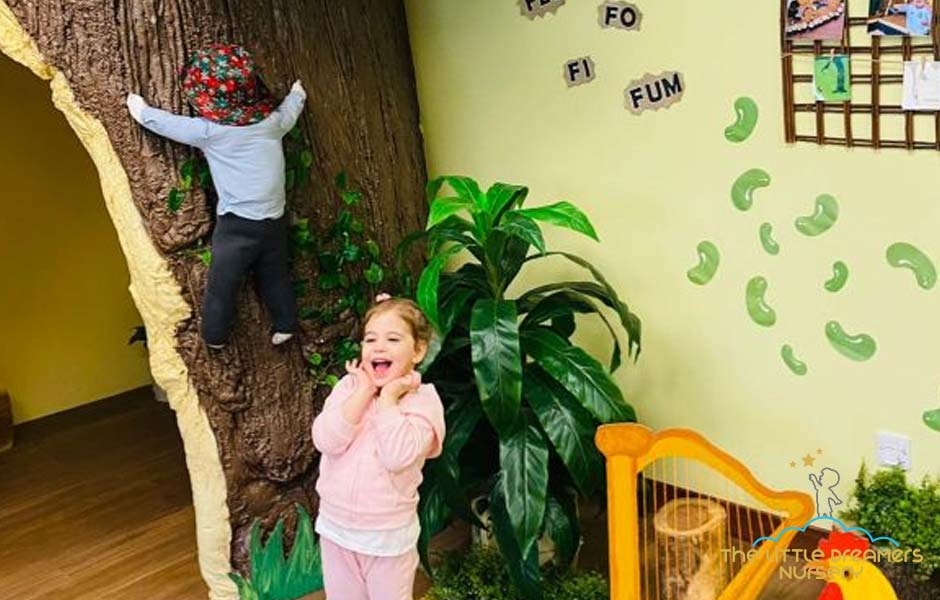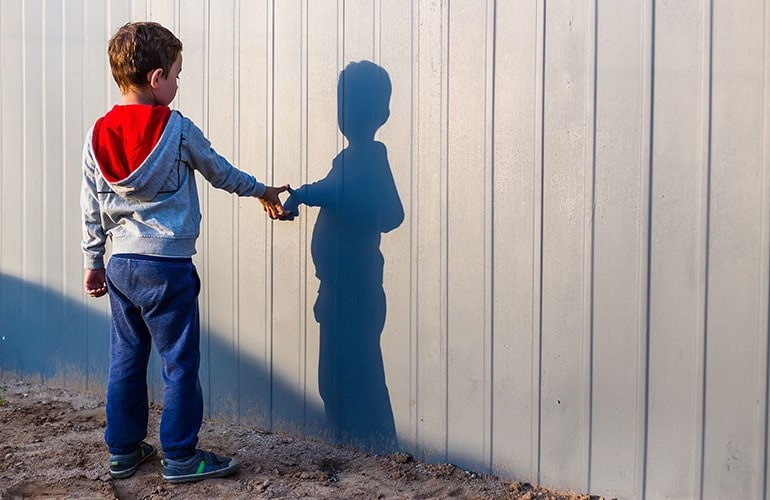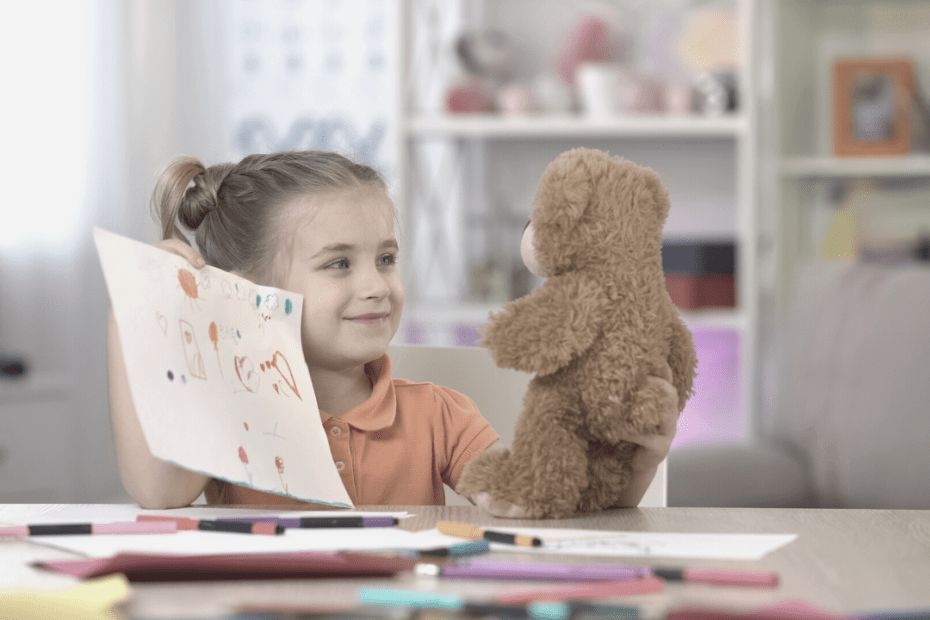Having an imaginary friend is quite natural for a young child. Children’s use of their imaginations, including creating imaginary pals, is a normal component of child development.
The presence of imaginary pals encourages children’s imaginative play and development. And when kids are feeling down or lonely, they may be a great source of solace and company.
Children’s use of imaginary friends, in which they share their innermost thoughts and feelings with their make-believe companions, can aid in developing healthy emotional regulation and insight. So, is it normal for toddlers to have imaginary friends? We must say Yes, but there are other things that you should know about.
Why do children have imaginary friends?
It’s tempting to assume your child is lonely or unhappy if she has a companion who exists in her imagination. It’s pretty improbable that that’s the problem. Children make imaginary friends for a variety of reasons:
- To hold a position of authority. Toddlers can take charge of their worlds through their imaginative play. In contrast to “actual” friends, who might steal their toys or argue over which games to play, imaginary friends never become jealous or take anything away.
- Imitating or pointing fingers at someone else. False allies in the imagination might serve as convenient scapegoats.
- To feel safe letting your emotions run wild. Even if your kid has trouble articulating her feelings, her imaginary buddy will have no problem venting her frustrations.
- Intended to ease anxiety. A child’s imaginary buddy can provide them with a sense of safety and stability while allowing them to practice courage.
- To have one’s feelings validated by one’s fellow humans. Is it common for your preschooler to talk at length about something without you understanding what she’s talking about? You try to assemble the pieces, but you still don’t know. So, at least her imaginary pal understands.
- As they are readily available. When real friends are unavailable, it’s nice to have someone to talk to in your head.
When my child talks to their imaginary friend, how do I react?
You may feel uncomfortable if your child asks you to help out her imaginary friend or if the friend approaches you with a question. Is it wise to participate? Yep! According to experts, parents shouldn’t worry about how to interact with the invisible buddy any more than they would with any of their child’s other pals. Ask your child what the friend’s name is and what it looks like if they haven’t already informed you.
You could also inquire as to the pastimes they enjoy. Go back to your pal if they ask you questions. So you shouldn’t initiate contact with the phantom friend. If your child has a friend, have them forward any communications to you.
Your child’s buddy may occasionally request to join the family for meals, such as breakfast at the table. Okay, that works too. Don’t go out of your way or make extra food for your made-up pal.
Likewise, you shouldn’t let an imaginary pal get away with bad behavior. The friend, for instance, may be held responsible for the (again again) scribbled-on wall. Nonetheless, it’s important to emphasize to your kid that she and her pal are in trouble and will spend some time in the time-out chair.
Remember that your child’s imaginary friend is not a reason for alarm, and treat them with the kindness and compassion they deserve. As a parent, you should encourage your child to use their imagination and share stories about their imaginary buddy. This can benefit their mental growth, creativity, and emotional maturity.
When does having an imaginary friend become a major issue?
Should I be worried if my child has an imaginary friend? Remember, your child’s need for an imaginary buddy is probably not a sign of underlying mental health issues. Despite parental concerns, studies have shown that youngsters who have imaginary pals are just as likely to go on to form relationships with real people.
There are many actual pals for kids who also have imagined ones. When do imaginary friends become a Problem? You should consult a doctor if:
- There’s something about your child’s imaginary companion that inspires terror.
- The child’s imaginary companion refuses to leave or quiet down.
- Your child’s imaginary buddy threatens or encourages her to act in a dangerous, damaging, or aggressive manner toward herself or others.
- There have been unexpected shifts in your child’s demeanor or attitude.
- You’re also worried about your kid’s progress in other areas, like language or socialization.
- One or more immediate family members have a history of mental illness.
Among Dubai nurseries, we guarantee to handle imaginary companions in the best way possible.
Conclusion
The presence of an imaginary friend is an organic and beneficial aspect of early life. It encourages imaginative play, helps kids feel safe and connected, and boosts social and emotional growth. Remind your youngster that having a not actual friend is a wonderful and regular part of growing up. At what age should a child stop having imaginary friends? How long do imaginary friends last? Well, usually six or seven. In our nursery in Dubai, we make sure that the imaginary friend situation is handled correctly.










